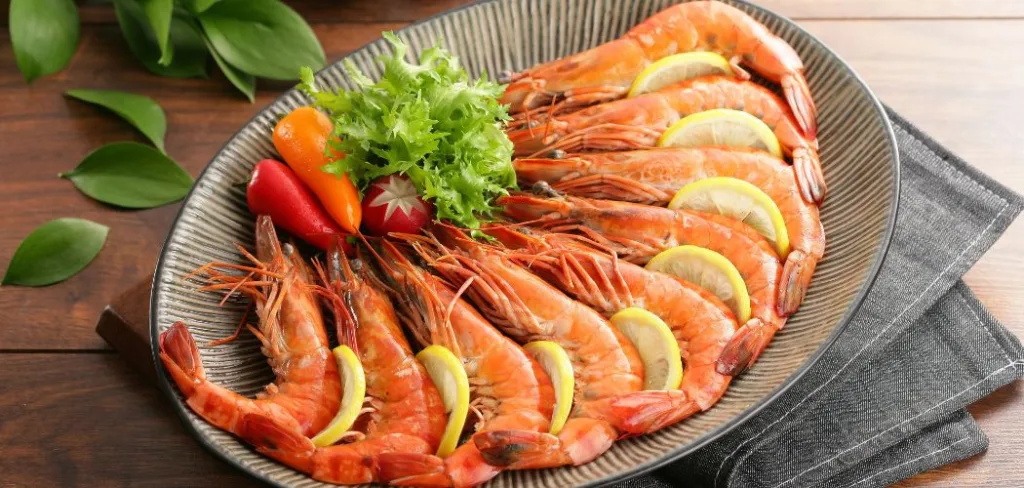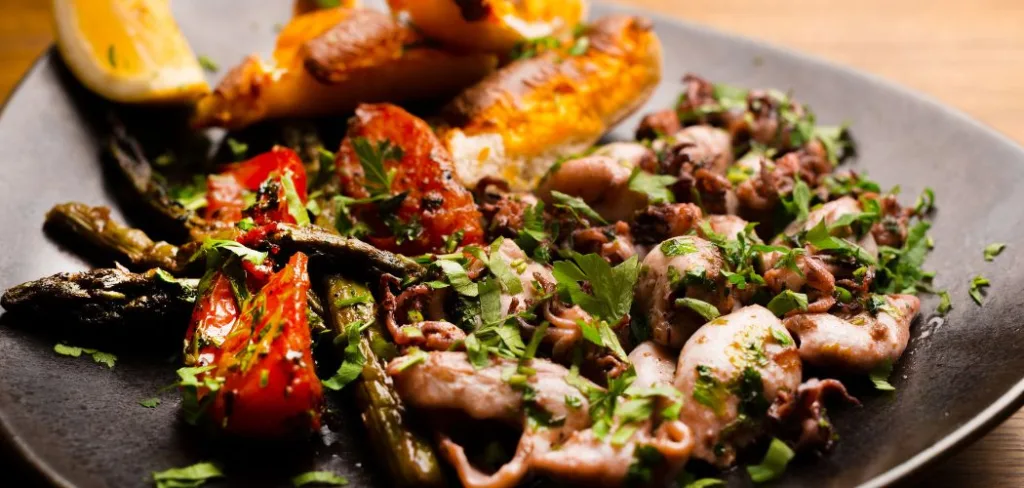You just finished a long day of work, and you’re feeling tired and rundown. But before you can go to bed, you have to wash your hands. That’s right—you need to do the dishes. And while there are a lot of ways to do this (including using the dishwasher), we recommend handwashing because it gets the job done quickly and is quick and easy. Plus, if you’re looking for the most sustainable option, handwashing is the way to go!
What is Raw Uncooked Shrimp
Shrimp is a marine animal that is classified as a shrimp. Shrimp are found in the ocean and include both fresh and frozen seafood. The food grade of shrimp is different than other seafood, which means it has been cooked to a Points of Wellness (PoW) level. The food-grade of shrimp can be found at grocery stores and restaurants.
What is the Difference between Shrimp and Other Marine Animals
The main difference between shrimp and other marine animals is that shrimp are alive while other animals are not. Sharks, for example, are not considered seafood because they do not belong to the same group of animals that include shrimp.
How to Cook Shrimp
How to cook shrimp depends on what type of shrimp you are using- fresh or frozen. For fresh shrimps, cook them in boiling water according to their weight (dried shrimps will not require cooking). For frozen shrimps, thaw them before cooking and then cook them in boiling water according to their size. Smaller shrimps will need less boiling water, but larger ones need more.
How to Get Started in the Shrimp Industry
The first step in the shrimp industry is to find a processor. A good place to start is by checking out online processors. These companies will list all of the different types of shrimp they offer and give you a list of vendors that they recommend.
Learn about the Different Types of Shrimp
There are three main types of shrimp: bigeye, smalleye, and pink shrimp. Bigeye and small eye shrimp are the most common type of shrimp found on Earth, while pink shrimp are a new genre of shrimp that has recently become popular. There are many different colors and flavors available for these types of shrimp, so before you start cooking them, you need to know what each one has to offer.
Start Cooking Shrimp
Once you’ve determined which type of shrimp you want to cook, it’s time to start cooking them! The first thing you’ll need is some fresh water and salt, as well as some supplies like heaters, pots, pans, and utensils (like skillets). To begin cooking your shrimps, heat up the water until it reaches a comfortable temperature (around 135 degrees Fahrenheit). Once the water is heated up, add salt to it and bring it back to a boil. then reduce the heat to low and cook for 3-5 minutes per side or until done.
If you have an open flame burning in your kitchen, be sure to put your shrimp in direct contact with it as this will help them cook faster! And if you don’t have an open flame burning in your kitchen, you can also put your shrimp in a pan with butter or vegetable oil and then put it in boiling water.
Get Shrimp Supplies
Once you’ve cooked your shrimp, it’s time to get them ready for the market. One way to do this is by purchasing shredded or frozen shrimp. Another option is to go ahead and cook them yourself before buying them, but be sure to follow the steps in this article to make sure they come out right. And finally, always store your cooked shrimp in a cool, dry place so they can stay fresh for long periods of time.
Tips for Enjoying Shrimp [Raw Uncooked Shrimp What You Need to Know]
When cooking shrimp, always follow these tips:
-Use a nonstick skillet to cook the shrimp. This will help prevent them from sticking and making the dish more difficult to remove.
-Use a small amount of oil when frying the shrimp. This will help prevent them from sticking and making the dish watery.
-Season your seafood by cooking it in different seasons before serving it. For example, cooked shrimp can be enjoyed in either summer or winter.
-Avoid overcooking or undercooking your seafood. Overcooked shrimp can be tough and rubbery, while undercooked seafood may not taste as good.
-Don’t fill up on seafood before bed because the next day’s stomach acids will spoil the lobster and crab dishes you tried earlier that day.
Crab Dishes
When cooking crab, always follow these tips:
-Fry the crabs in a small amount of oil until they start to turn golden brown; this will avoid them from sticking and making the dish watery.
-Season your seafood by cooking it in different seasons before serving it.
-Avoid overcooking or undercooking your crab dishes; overcooked crabs can be tough and rubbery, while undercooked crab dishes may not taste as good – If you want to keep your crab for a long time, put it in an airtight container.
Lobster Dishes
When cooking lobster, always follow these tips:
-Start by frying the lobster in a small amount of oil until they start to turn golden brown; this will avoid them from sticking and making the dish watery.
-Season your seafood by cooking it in different seasons before serving it.
-Avoid overcooking or undercooking your lobster dishes; overcooked lobster can be tough and rubbery, while undercooked lobster dishes may not taste as good – If you want to keep your lobster for a long time, put it in a container with a tight-fitting lid.
If you’re interested in cooking shrimp, there are a few things you should keep in mind. First, shrimp is a marine animal and not meat like beef or pork. This means that it doesn’t contain any connective tissue, which gives it a more delicate texture.
Second, cook shrimp according to the recipe you choose. For example, some people like their shrimp to be cooked in oil, but others like them to be cooked in butter. Finally, be sure to get quality shrimp supplies before start cooking – this way you can ensure delicious, cooked seafood at all times!


